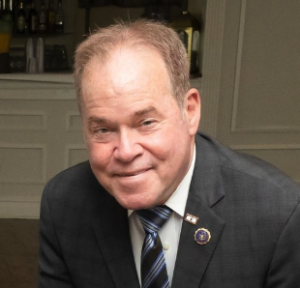

New City, NY – A new legislative proposal introduced by Senator James Skoufis (D-Orange County) seeks to withdraw Orange County from the Metropolitan Transportation Authority (MTA), a move that has sparked strong reactions from neighboring Rockland County officials. The bill, S.4288, co-sponsored in the State Assembly by Assemblyman Jonathan Jacobson (D-Newburgh), highlights long-standing frustrations over what Orange County legislators describe as inadequate service and overburdening taxes imposed by the MTA.
Orange County residents currently contribute to the MTA through multiple taxes and fees, including payroll and gas taxes, mortgage recording fees, and vehicle registration surcharges. Despite this, they have limited access to MTA services, with only one train line offering sporadic service and no direct, one-seat ride into Manhattan. The introduction of congestion pricing—a $9 toll for vehicles entering midtown and lower Manhattan—has further fueled discontent, as it adds another cost for drivers without providing any additional service improvements.
“Orange County residents pay similar if not identical MTA fees and taxes as other, highly-serviced areas,” Skoufis said, adding that the MTA has shown no concrete plans to expand service or address local concerns. “It is time Orange County parted ways with the MTA once and for all.”
Jacobson said, “The MTA has not kept its end of the bargain by failing to expand service and adequately maintain its infrastructure in Orange County. It is time to leave the MTA. Orange County can do better.”
While this legislative push is specific to Orange County, the sentiments behind it resonate strongly in Rockland County, where officials have similarly criticized the MTA for providing insufficient services while imposing high costs on residents.
Rockland County Executive Ed Day, a vocal critic of the MTA’s congestion pricing and financial management, responded to the news with renewed frustration.
“Rockland County has been down this path before and has analyzed a potential withdrawal based on legislation previously in place. Rockland has had a proven annual value gap between what we pay to MTA and what we receive in return for more than 30 years. Our current value gap is well over $40 million a year,” said Day. “With just one morning express train on the Pascack Valley line and no one-seat-ride to Manhattan, it’s well past time for MTA to invest in Rockland County. And while we would certainly be justified in withdrawing from the MTA, given the inferior rail service we receive for the exorbitant price we pay, our next steps must be carefully considered. Given recent significant progress on the Gateway Tunnel project and the regular mention of the Bergen Loop component by the MTA and NJ Transit (the Bergen Loop will provide Rockland County residents with a much-needed and long-awaited one-seat-ride via rail to Manhattan for the first time in history) we expect and hope for greatly improved transit options in Rockland’s future.”
Day, said, “We will be watching this proposal carefully as it proceeds forward and will discuss any potential next steps with our NYS delegation, local elected officials and residents.”
Rockland County, like Orange, has long struggled with limited access to MTA services despite being required to pay into the system. The county’s leaders have frequently called for better representation on the MTA board and more equitable service expansion. The growing frustration with the MTA’s policies and financial practices could potentially influence similar discussions in Rockland, as residents and officials alike weigh the costs and benefits of continued participation in the regional transportation authority.
As Skoufis’s bill moves through the legislative process, it remains to be seen whether other counties, including Rockland, will consider similar measures or seek alternative solutions to address longstanding grievances with the MTA.

